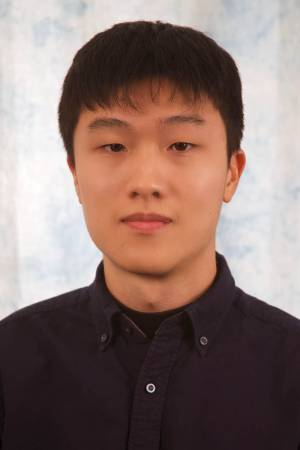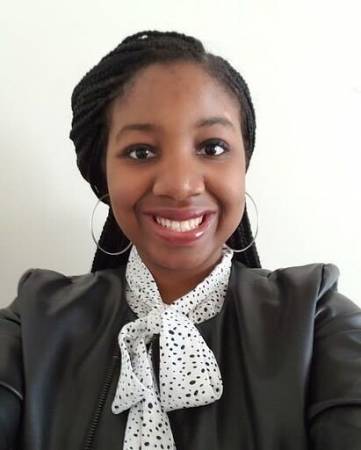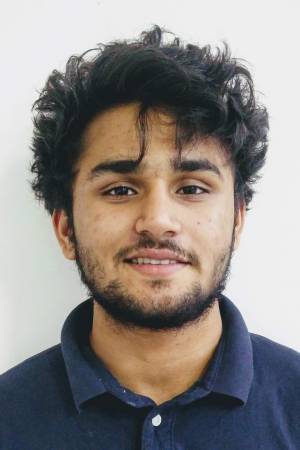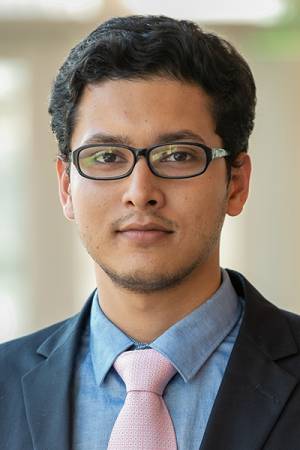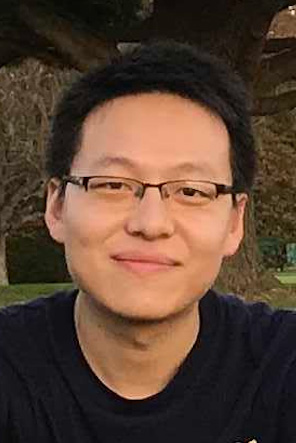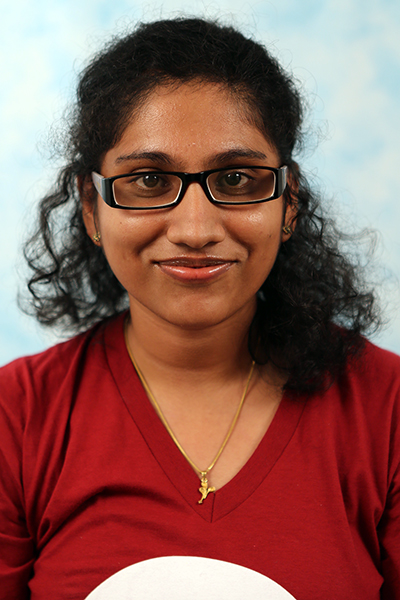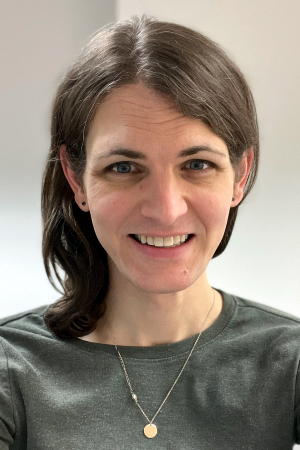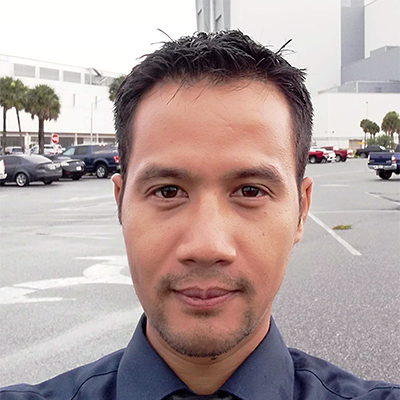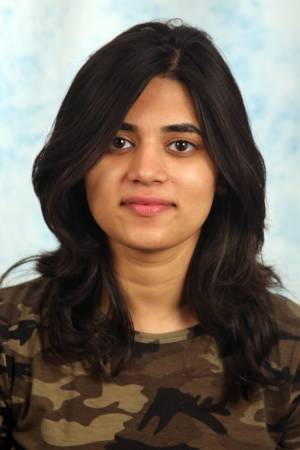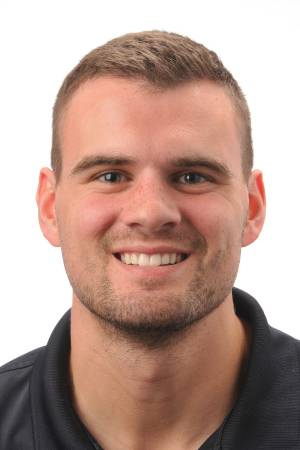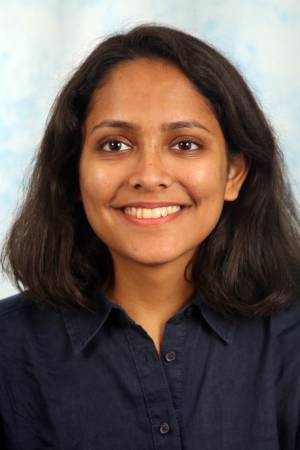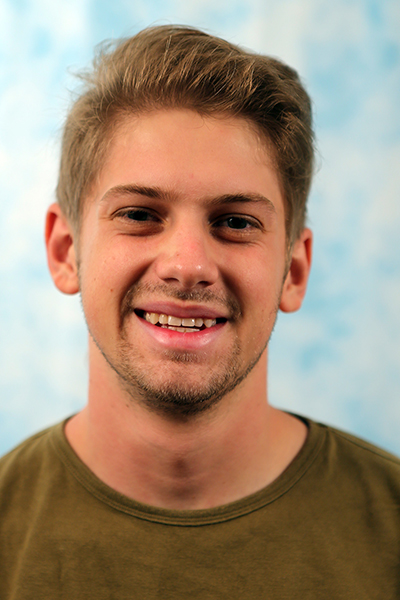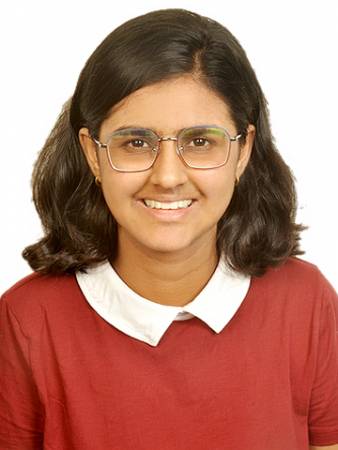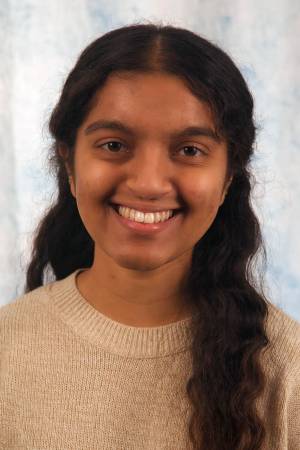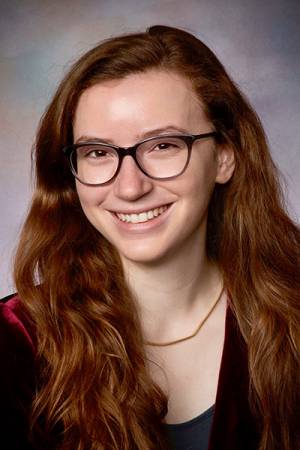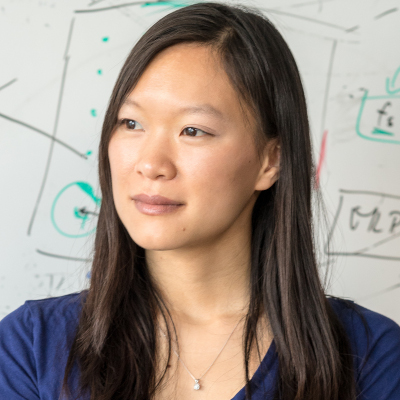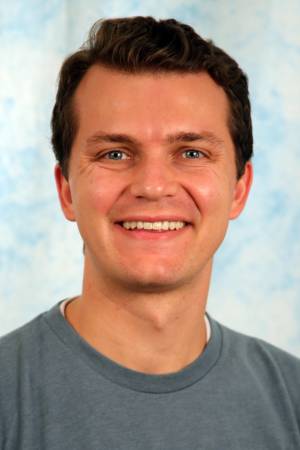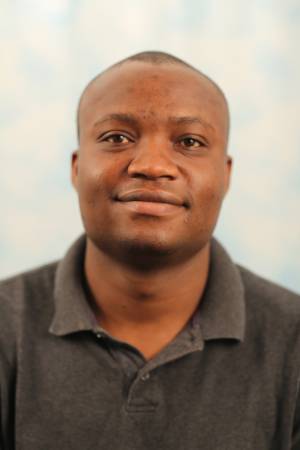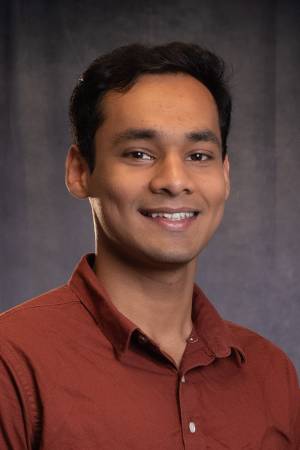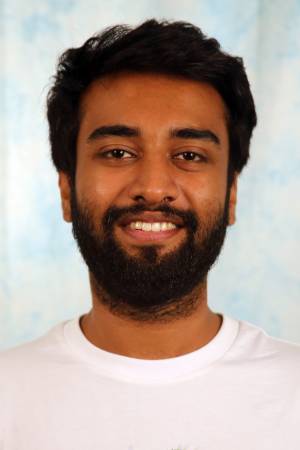Vision Model Diagnosis and Improvement Via Large Pretrained Models
Abstract: As AI becomes increasingly pervasive in real-world applications, the deployment of machine learning models in real-world applications has underscored critical challenges in model robustness, fairness and performance. Despite significant advances, existing models often exhibit biases, fail to generalize across diverse data distributions, and struggle with unexpected input variations, leading to suboptimal or even discrimina- [...]
Beyond Robot Safety: Adaptability and Interactivity
Abstract: The deployment of autonomous robots in various areas, including transportation and human-robot collaboration, requires strong safety measures for effective interaction with the physical world. Traditional safe control algorithms work well in controlled settings but struggle to adapt to more interactive and unpredictable real-world scenarios. This thesis emphasizes the need to explore beyond traditional robot [...]
RI Faculty Business Meeting
Meeting for RI Faculty. Discussions include various department topics, policies, and procedures. Generally meets weekly.
Indoor Localization and Mapping with 4D mmWave Imaging Radar
Abstract: State estimation is a crucial component for the successful implementation of robotic systems, relying on sensors such as cameras, LiDAR, and IMUs. However, in real-world scenarios, the performance of these sensors is degraded by challenging environments, e.g. adverse weather conditions and low-light scenarios. The emerging 4D imaging radar technology is capable of providing robust perception in adverse conditions. [...]
PIE-FRIDA: Personalized Interactive Emotion-Guided Collaborative Human-Robot Art Creation
Abstract: The introduction of generative AI has brought about many improvements in the artistic world. It allows many individuals to create artwork via simple descriptive text prompts. This has, in particular, created an avenue for non-artistic individuals to express their thoughts through generated art. Our work focuses on how emotion can be added as an [...]
Where’s RobotGPT?
Abstract: The last years have seen astonishing progress in the capabilities of generative AI techniques, particularly in the areas of language and visual understanding and generation. Key to the success of these models are the use of image and text data sets of unprecedented scale along with models that are able to digest such large [...]
Carnegie Mellon University
Spectral Mapping using Simple Sensors
Abstract: Spectral mapping holds significant importance in many exploration endeavors as it facilitates a deeper comprehension of material composition within a surveyed area. While imaging spectrometers excel in recording reflectance spectra into spectral maps, their large physical footprint, substantial power requirements, and operational intricacies render them unsuitable for integration into small rovers or resource-constrained missions. [...]
Neural Field Representations of Mobile Computational Photography
Abstract: Burst imaging pipelines allow cellphones to compensate for less-than-ideal optical and sensor hardware by computationally merging multiple lower-quality images into a single high-quality output. The main challenge for these pipelines is compensating for pixel motion, estimating how to align and merge measurements across time while the user's natural hand tremor involuntarily shakes the camera. In [...]
Simulated Encounters of the Third Kind: Scenario-Based Approach to Designing Guide Robots
Abstract: Navigating through unfamiliar environments is a challenging task. For people who are blind or have low vision (BLV), navigation can be particularly daunting. Guide robots are a type of service robot that can assist BLV people with navigation tasks. A significant amount of research related to guide robots has focused on technical contributions, while a [...]
Composing Generative and Discriminative Models for Better Generalization
Abstract: Computer Vision is Correspondence, correspondence, correspondence! Inspite of the singular definition of computer vision, we still have two broad categories of approaches in the literature. Generative Models, like Stable Diffusion, learn a correspondence between image and text modality, while learning a mapping from text to image. Discriminative Models, like CLIP, on the other hand [...]
Lower Bounds for Moving Target Traveling Salesman Motion Planning with Obstacles
Abstract: We study the problem of finding a trajectory for an agent to intercept a number of moving targets while avoiding obstacles. Applications include resupplying naval ships at sea and recharging aerial vehicles with a ground vehicle. We model the problem as an extension of the traveling salesman problem, which we refer to as the [...]
Towards Pragmatic Time Series Intelligence
Abstract: The widespread adoption of time series machine learning (ML) models faces multiple challenges involving data, modeling and evaluation. Data. Modern ML models depend on copious amounts of cohesive and reliably annotated data for training and evaluation. However, labeled data is not always available and reliable, and can also be dispersed across different locations. We [...]
Probabilistic 3D Multi-Object Cooperative Tracking for Autonomous Driving via Differentiable Multi-Sensor Kalman Filter
Abstract: Current state-of-the-art autonomous driving vehicles mainly rely on each individual sensor system to perform perception tasks. Such a framework's reliability could be limited by occlusion or sensor failure. To address this issue, more recent research proposes using vehicle-to-vehicle (V2V) communication to share perception information with others. However, most relevant works focus only on cooperative [...]
Super Odometry: Selective Fusion Towards All-degraded Environments
Abstract: Robust odometry is at the core of robotics and autonomous systems operating navigation, exploration, and locomotion in complex environments for a broad spectrum of applications. While great progress has been made, the robustness of the odometry system still remains a grand challenge. This talk introduces Super Odometry, an approach that leverages selective fusion to [...]
Improved Surface Estimation for use in Virtual Fixtures during Retinal Surgery
Abstract: Retinal surgery procedures require surgeons to manipulate very delicate tissues with little room for error. During epiretinal membrane surgery, to reduce chances of recurrence, surgeons may have to remove the 10 µm thick internal limiting membrane from the retinal surface. An experimental procedure to treat retinal vein occlusion is retinal vein cannulation. During this [...]
Causal Robot Learning for Manipulation
Abstract: Two decades into the third age of AI, the rise of deep learning has yielded two seemingly disparate realities. In one, massive accomplishments have been achieved in deep reinforcement learning, protein folding, and large language models. Yet, in the other, the promises of deep learning to empower robots that operate robustly in real-world environments [...]
Robot Learning by Understanding Egocentric Videos
Abstract: True gains of machine learning in AI sub-fields such as computer vision and natural language processing have come about from the use of large-scale diverse datasets for learning. In this talk, I will discuss how we can leverage large-scale diverse data in the form of egocentric videos (first-person videos of humans conducting different tasks) [...]
Special Seminar
Speaker: Abhisesh Silwal Title: Robotics and AI for Sustainable Agriculture Abstract: Production agriculture plays a critical role in our lives, providing food security and enabling sustainability. Despite its immense importance, it currently faces many challenges including shortage of farmworkers, increasing production costs, excess use of herbicides just to name a few. Robotics and artificial intelligence-based [...]
Learning to Manipulate Using Diverse Datasets
Abstract: Autonomous agents can play games (like Chess, Go, and even Starcraft), they can help make complex scientific predictions (e.g., protein folding), and they can even write entire computer programs, with just a bit of prompting. However, even the most basic physical manipulation skills, like unlocking and opening a door, still remain literally out-of-reach. The [...]
Passive Ultra-Wideband Single-Photon Imaging
Abstract: High-speed light sources, fast cameras, and depth sensors have made it possible to image dynamic phenomena occurring in ever smaller time intervals with the help of actively-controlled light sources and synchronization. Unfortunately, while these techniques do capture ultrafast events, they cannot simultaneously capture slower ones too. I will discuss our recent work on passive ultra-wideband [...]
3D Perception In-The-Wild
Abstract: State estimation is a fundamental component of embodied perception. Contemporary autonomous vehicle (AV) benchmarks have advanced techniques for training 3D detectors, particularly on large-scale data. Notably, although prior work has nearly solved 3D object detection for a few common classes (e.g., pedestrian and car), detecting many rare classes in-the-tail (e.g., debris and stroller) remains [...]
Learning on the Move: Integrating Action and Perception for Mobile Manipulation
Abstract: While there has been remarkable progress recently in the fields of manipulation and locomotion, mobile manipulation remains a long-standing challenge. Compared to locomotion or static manipulation, a mobile system must make a diverse range of long-horizon tasks feasible in unstructured and dynamic environments. While the applications are broad and interesting, there are a plethora [...]
Differentiable Convex Modeling for Robotic Planning and Control
Abstract: Robotic simulation, planning, estimation, and control, have all been built on top of numerical optimization. In this same time, modern convex optimization has matured into a robust technology delivering globally optimal solutions in polynomial time. With advances in differentiable optimization and custom solvers capable of producing smooth derivatives, convex modeling has become fast, reliable, [...]
Simulation-Driven Soft Robotics
Abstract: Soft-bodied robots present a compelling solution for navigating tight spaces and interacting with unknown obstacles, with potential applications in inspection, medicine, and AR/VR. Yet, even after a decade, soft robots remain largely in the prototype phase without scaling to the tasks where they show the most promise. These systems are difficult to design and [...]
Plan to Learn: Active Robot Learning by Planning
Abstract: Robots need a diverse repertoire of capable motor skills to succeed in the open world. Such a skillset cannot be learned or designed purely on human initiative. In this thesis, we advocate for an active continual learning approach that enables robots to take charge of their own learning. The goal of an autonomously learning [...]
RI Faculty Business Meeting
Meeting for RI Faculty. Discussions include various department topics, policies, and procedures. Generally meets weekly.
Continual Personalization of Human Actions with Prompt Tuning
Abstract: In interactive computing devices (VR/XR headsets), users interact with the virtual world using hand gestures and body actions. Typically, models deployed in such XR devices are static and limited to their default set of action classes. The goal of our research is to provide users and developers with the capability to personalize their experience by [...]
Policy Decomposition
Abstract: Optimal Control is a popular formulation for designing controllers for dynamic robotic systems. Under the formulation, the desired long-term behavior of the system is encoded via a cost function and the policy, i.e. a mapping from the state of the system to control commands, to achieve the desired behavior are obtained by solving an [...]
Analysis by Synthesis for Modern Computer Vision
Abstract: Image denoising, depth completion, scene flow, and dynamic 3D reconstruction are all examples of recovery problems: the estimation of multidimensional signals from corrupted or partial measurements. This thesis examines these problems from the classic analysis-by-synthesis perspective, where a signal model is used to propose hypotheses, which are then compared to observations. This paradigm has [...]
Reinforcement Learning with Spatial Reasoning for Dexterous Robotic Manipulation
Abstract: Robotic manipulation in unstructured environments requires adaptability and the ability to handle a wide variety of objects and tasks. This thesis presents novel approaches for learning robotic manipulation skills using reinforcement learning (RL) with spatially-grounded action spaces, addressing the challenges of high-dimensional, continuous action spaces and alleviating the need for extensive training data. Our [...]
Leveraging Vision, Force Sensing, and Language Feedback for Deformable Object Manipulation
Deformable object manipulation represents a significant challenge in robotics due to its complex dynamics, lack of low-dimensional state representations, and severe self-occlusions. This challenge is particularly critical in assistive tasks, where safe and effective manipulation of various deformable materials can significantly improve the quality of life for individuals with disabilities and address the growing needs [...]
CBGT-Net: A Neuromimetic Architecture for Robust Classification of Streaming Data
Abstract: This research introduces CBGT-Net, a neural network model inspired by the cortico-basal ganglia-thalamic (CBGT) circuits in mammalian brains, which are crucial for critical thinking and decision-making. Unlike traditional neural network models that generate an output for each input or after a fixed sequence of inputs, CBGT-Net learns to produce an output once sufficient evidence [...]
Information-Based Adaptive Allocation of Heterogeneous Multi-Agent Teams for Search and Coverage
Abstract: Information-based search and coverage are important in planetary exploration and disaster response applications. Efficient information acquisition can help with increasing geological understanding or situational awareness. Heterogeneous robots, each with different sensing and motion modalities, can be coordinated to optimize search and coverage in a target region. Information maps, which estimate the importance of visiting [...]
Enhancing Robot Perception and Interaction Through Structured Domain Knowledge
Abstract: Despite the advancements in deep learning driven by increased computational power and large datasets, significant challenges remain. These include difficulty in handling novel entities, limited mechanisms for human experts to update knowledge, and lack of interpretability, all of which are crucial for human-centric applications like assistive robotics. To address these issues, we propose leveraging [...]
Dynamic Multi-Objective Trajectory Planning for Mobile Robots
Abstract: Robotic explorers play a crucial role in acquiring data from areas that are difficult or impossible for humans to reach. Whether for planetary exploration, search and rescue missions, agriculture, or other scientific exploration tasks, these robots can utilize pre-existing knowledge of the terrain to navigate effectively. In search- and coverage-oriented scenarios, robots must consider [...]
From Understanding to Interacting with the 3D World
Abstract: Understanding the 3D structure of real-world environments is a fundamental challenge in machine perception, critical for applications spanning robotic navigation, content creation, and mixed reality scenarios. In recent years, machine learning has undergone rapid advancements; however, in the 3D domain, such data-driven learning is often very challenging under limited 3D/4D data availability. In this talk, [...]
Motion planning for manipulation under pose uncertainty using contacts
Abstract: Numerous manipulation tasks, such as plug insertion and pipe assembly, demand an extremely high level of precision in pose estimation. Even minor errors, on the order of 2mm, can lead to task failure. While robots often rely on vision for object detection and localization, achieving consistent, high-precision localization using visual methods is not always [...]
Robust Off-road Wheel Odometry with Slip Estimation
Abstract: Wheel odometry is not often used in state estimation for off-road vehicles due to frequent wheel slippage, varying wheel radii, and the 3D motion of the vehicle not fitting with the 2D nature of integrated wheel odometry. This paper proposes a novel 3D preintegration of wheel encoder measurements on manifold. Our method additionally estimates [...]
Composable Optimization for Robotic Motion Planning and Control
Abstract: Contact interactions are pervasive in real-world robotics tasks like manipulation and walking. However, the non-smooth dynamics associated with impacts and friction remain challenging to model, and motion planning and control algorithms that can fluently and efficiently reason about contact remain elusive. In this talk, I will share recent work from my research group that takes an “optimization-first” [...]
Optimal Modular Robot Design for Mobile Manipulation in Agriculture
Abstract: Although agriculture is a highly mechanized industry, numerous sectors like horticulture and floriculture heavily depend on manual labor because they require safe handling of plants and produce that can only be left to humans. However, many research and commercial robots have succeeded in several challenging dexterous manipulation tasks like harvesting, pruning, and plant health [...]
Aligning Robot Task and Interaction Policies to Human Values
Abstract: The value alignment problem considers how robots can learn to behave in accordance with human values. Today, robot learning paradigms enable humans to provide data (e.g., preference labels or demonstrations), which the robot uses to update its behavior (e.g., reward model or policy) to be closer to the human’s values. However, the current paradigm [...]
Learned Imaging Systems
Abstract: Computational imaging systems are based on the joint design of optics and associated image reconstruction algorithms. Of particular interest in recent years has been the development of end-to-end learned “Deep Optics” systems that use differentiable optical simulation in combination with backpropagation to simultaneously learn optical design and deep network post-processing for applications such as hyperspectral [...]
Accelerating Robot Task Learning with Large Pretrained Models and Internet Data
Abstract: Large pre-trained models and internet data sources are key to general and efficient robot task learning. However, learning contact-rich behaviors, semantic task constraints, and robust task planning from internet data sources remains an open challenge. This proposal seeks to make progress towards a general robot task learning system leveraging pre-trained models and internet data. [...]
A Modularized Approach to Vision-based Tactile Sensor Design Using Physics-based Rendering
Abstract: Touch is an essential sensing modality for making autonomous robots more dexterous and allowing them to work collaboratively with humans. In particular, the advent of vision-based tactile sensors has resulted in efforts to design them for different robotic manipulation tasks. However, this design task remains a challenging problem. This is for two reasons: first, [...]
Towards Universal Place Recognition
Title: Towards Universal Place Recognition Abstract: Place Recognition is essential for achieving robust robot localization. However, current state-of-art systems remain environment/domain-specific and fragile. By leveraging insights from vision foundation models, we present AnyLoc, a universal VPR solution that performs across diverse environments without retraining or fine-tuning, significantly outperforming supervised baselines. We further introduce MultiLoc, and enable [...]
Enhancing Model Performance and Interpretability with Causal Inference as a Feature Selection Algorithm
Abstract: Causal inference focuses on uncovering cause-effect relationships from data, diverging from conventional machine learning which primarily relies on correlation analysis. By identifying these causal relationships, causal inference improves feature selection for predictive models, leading to predictions that are more accurate, interpretable, and robust. This approach proves especially effective with interventional data, such as randomized [...]
ARPA-H and America’s Health: Pursuing High-Risk/High-Reward Research to Improve Health Outcomes for All
Dr. Andy Kilianski will provide an overview of ARPA-H, a new U.S. government funding agency pursuing R&D for health challenges. He will review the unique niche occupied by ARPA-H within the Department of Health and Human Services and how ARPA-H is already partnering with academia and industry to transform health outcomes across the country. Discussion [...]
GNSS-denied Ground Vehicle Localization for Off-road Environments with Bird’s-eye-view Synthesis
Abstract: Global localization is essential for the smooth navigation of autonomous vehicles. To obtain accurate vehicle states, on-board localization systems typically rely on Global Navigation Satellite System (GNSS) modules for consistent and reliable global positioning. However, GNSS signals can be obstructed by natural or artificial barriers, leading to temporary system failures and degraded state estimation. On the [...]
Scaling up Robot Skill Learning with Generative Simulation
Abstract: Generalist robots need to learn a wide variety of skills to perform diverse tasks across multiple environments. Current robot training pipelines rely on humans to either provide kinesthetic demonstrations or program simulation environments with manually-designed reward functions for reinforcement learning. Such human involvement is an important bottleneck towards scaling up robot learning across diverse [...]
Simulation as a Tool for Conspicuity Measurement
Abstract: The use of unmanned aerial vehicles (UAVs) for time critical tasks is becoming increasingly popular. Operators are expected to use information from these swarms to make real-time and informed decisions. Consequently, detecting and recognizing targets from video is extremely pivotal to the success of these systems. At greater altitudes or with more vehicles, this [...]
VP4D: View Planning for 3D and 4D Scene Understanding
Abstract: View planning plays a critical role by gathering views that optimize scene reconstruction. Such reconstruction has played an important part in virtual production and computer animation, where a 3D map of the film set and motion capture of actors lead to an immersive experience. Current methods use uncertainty estimation in neural rendering of view [...]
Unlocking Generalization for Robotics via Modularity and Scale
Abstract: How can we build generalist robot systems? Looking at fields such as vision and language, the common theme has been large scale end-to-end learning with massive, curated datasets. In robotics, on the other hand, scale alone may not be enough due to the significant multimodality of robotics tasks, lack of easily accessible data and [...]
Automating Annotation Pipelines by leveraging Multi-Modal Data
Abstract: The era of vision-language models (VLMs) trained on large web-scale datasets challenges conventional formulations of “open-world" perception. In this work, we revisit the task of few-shot object detection (FSOD) in the context of recent foundational VLMs. First, we point out that zero-shot VLMs such as GroundingDINO significantly outperform state-of-the-art few-shot detectors (48 vs. 33 AP) [...]
Leveraging Affordances for Accelerating Online RL
Abstract: The inability to explore environments efficiently makes online RL sample-inefficient. Most existing works tackle this problem in a setting devoid of prior information. However, additional affordances may often be cheaply available at the time of training. These affordances include small quantities of demo data, simulators that can reset to arbitrary states and domain specific [...]


